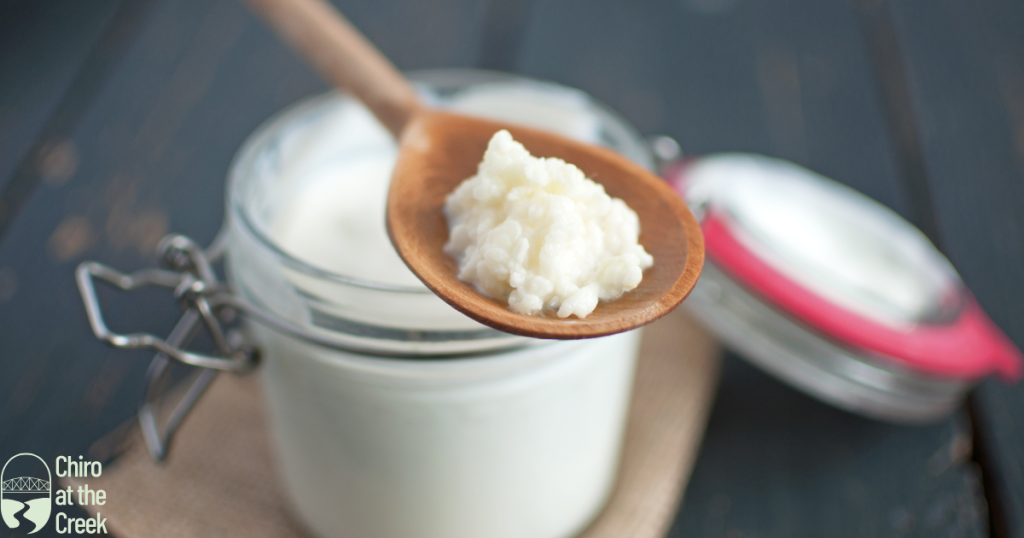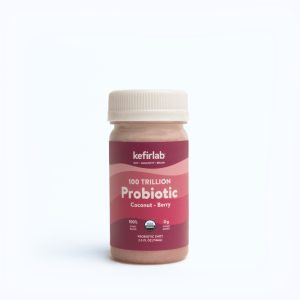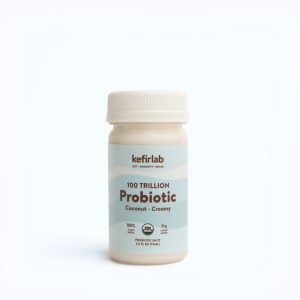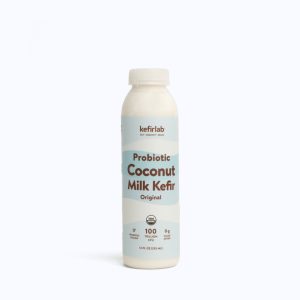Kefir: The Secret Weapon for Improving Digestion and Gut Health – ProbioticsX Marketplace

Kefir: The Secret Weapon for Improving Digestion and Gut Health
What is Kefir and How Does it Improve Digestion?
Kefir is a fermented milk drink that has been consumed for centuries due to its numerous health benefits. It is made by adding kefir grains, which are a combination of bacteria and yeast, to milk and allowing it to ferment for a period of time. The fermentation process breaks down lactose, making kefir easier to digest for those who are lactose intolerant.
One of the key ways in which kefir improves digestion is through its high probiotic content. Probiotics are live bacteria and yeasts that are beneficial for gut health. Kefir contains a wide variety of probiotic strains, including Lactobacillus and Bifidobacterium, which help to restore the balance of good bacteria in the gut. This can help to alleviate symptoms of digestive issues such as bloating, gas, and constipation.
In addition to its probiotic content, kefir also contains enzymes that aid in the digestion of lactose and other nutrients. These enzymes help to break down food more effectively, allowing for better absorption of nutrients and reducing the likelihood of digestive discomfort. Overall, incorporating kefir into your diet can help to improve overall digestion and promote a healthy gut microbiome.
The Probiotic Power of Kefir for Gut Health
Probiotics are essential for maintaining a healthy gut microbiome, which plays a crucial role in overall health and well-being. The gut microbiome is made up of trillions of bacteria that help to digest food, produce essential nutrients, and regulate the immune system. When the balance of good and bad bacteria in the gut is disrupted, it can lead to digestive issues and other health problems.
Kefir is a potent source of probiotics, containing up to 61 different strains of beneficial bacteria. These probiotics help to populate the gut with good bacteria, which can improve digestion, boost the immune system, and reduce inflammation. Studies have shown that consuming kefir can help to alleviate symptoms of digestive disorders such as irritable bowel syndrome (IBS) and inflammatory bowel disease (IBD).
In addition to its probiotic content, kefir also contains prebiotics, which are a type of fiber that feed the good bacteria in the gut. This symbiotic relationship between probiotics and prebiotics helps to promote a healthy gut microbiome and improve overall gut health. By incorporating kefir into your daily routine, you can support your gut health and improve digestion.
How to Incorporate Kefir into Your Daily Routine
There are many ways to incorporate kefir into your daily routine to reap its digestive benefits. One of the simplest ways is to drink kefir on its own as a refreshing beverage. You can also use kefir as a base for smoothies, salad dressings, or overnight oats. Kefir can also be used as a substitute for yogurt in recipes such as dips, sauces, and baked goods.
If you prefer a dairy-free option, there are also non-dairy kefir alternatives, from Kefir Labs, made from coconut milk. This alternative still contains probiotics and can provide similar digestive benefits. You can find kefir in most grocery stores or make your own at home using kefir grains and milk. Kefir Labs also has high quality, non dairy kefir drinks to help balance out your gut microbiome.
To maximize the digestive benefits of kefir, it is recommended to consume it regularly as part of a balanced diet. Aim to include kefir in your daily routine to support your gut health and improve digestion.
The Science Behind Kefir’s Impact on Digestive Health
Numerous studies have been conducted to investigate the impact of kefir on digestive health. One study published in the Journal of Dairy Science found that consuming kefir improved lactose digestion in lactose-intolerant individuals. The probiotics in kefir help to break down lactose, making it easier to digest for those with lactose intolerance.
Another study published in the journal Nutrients found that kefir consumption was associated with improvements in symptoms of IBS, such as bloating and abdominal pain. The probiotics in kefir help to restore the balance of good bacteria in the gut, which can alleviate symptoms of digestive disorders.
Research has also shown that kefir can help to reduce inflammation in the gut and improve the integrity of the intestinal barrier. This can help to prevent leaky gut syndrome, a condition in which the lining of the intestines becomes permeable, allowing toxins and bacteria to enter the bloodstream.
Overall, the scientific evidence supports the use of kefir as a powerful tool for improving digestion and gut health. By incorporating kefir into your daily routine, you can support your gut microbiome, alleviate digestive issues, and promote overall well-being.




